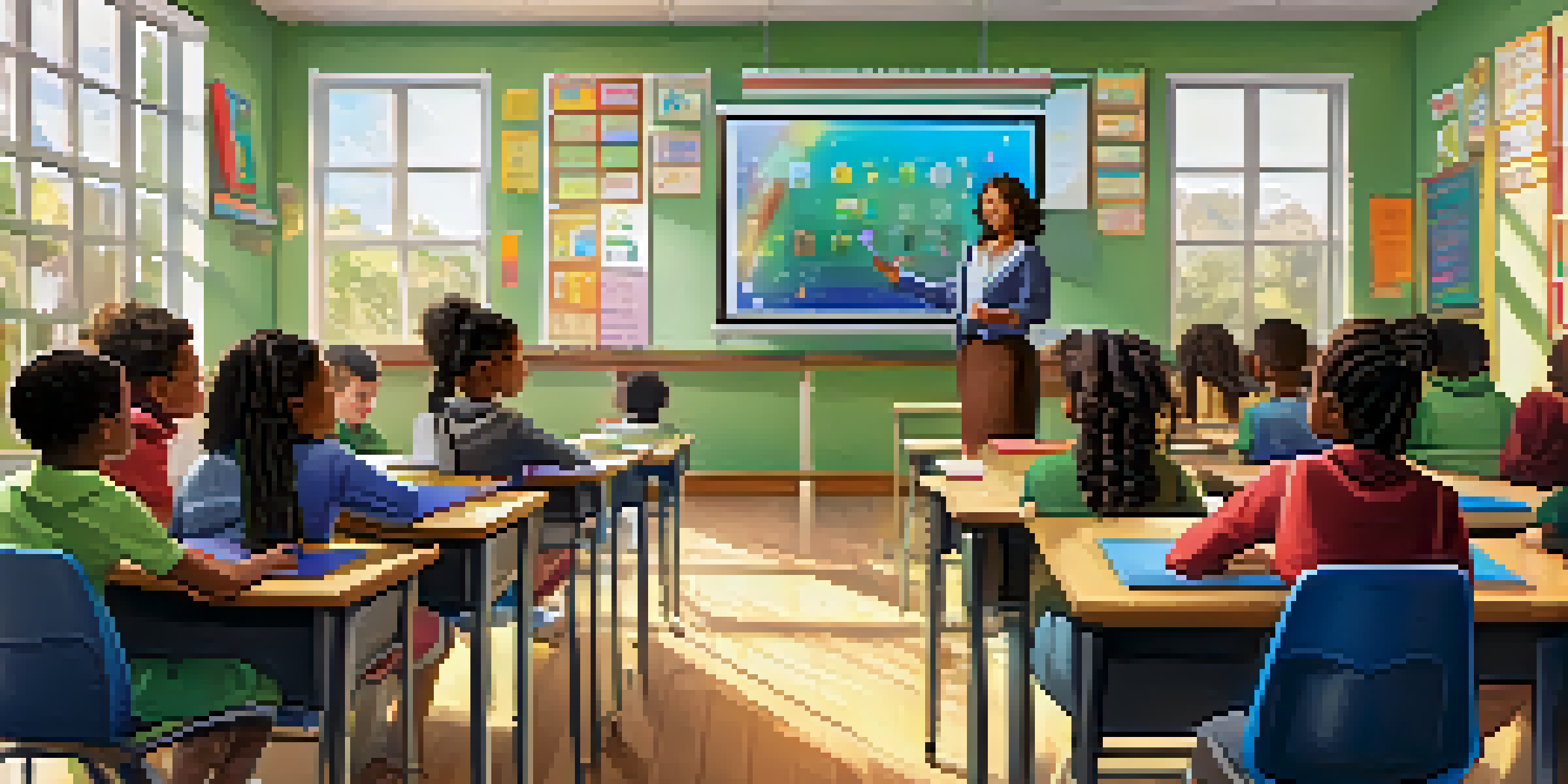The Role of Technology in Shaping Educator Strategies

Understanding Technology's Influence on Education Today
Technology has revolutionized the way we approach education, allowing for dynamic teaching strategies that were once unimaginable. From smart boards to educational apps, today's classrooms are becoming interactive environments that foster engagement. This shift not only enhances learning experiences but also helps educators adapt to diverse student needs. Essentially, technology has transformed education into a more personalized journey, making learning accessible for all.
The Shift from Traditional to Digital Learning Tools
Gone are the days when teachers relied solely on textbooks and chalkboards. Today, digital learning tools like online resources and multimedia presentations are at the forefront of education. These tools not only provide a wealth of information but also cater to various learning styles, whether visual, auditory, or kinesthetic. By embracing these resources, educators can create a more engaging and effective learning environment.
Tech Transforms Learning Experiences
Technology has personalized education, making it more engaging and accessible for diverse student needs.
Enhancing Communication between Educators and Students
One of the most significant changes technology brings to education is improved communication. Platforms like Google Classroom or Zoom allow for real-time interaction, making it easier for educators to connect with their students. This seamless communication fosters a sense of community and encourages students to participate actively in their learning. In this way, technology breaks down barriers and creates a more inclusive classroom atmosphere.
Data-Driven Decision Making in Education
With the rise of educational technology comes the ability to gather and analyze data effectively. Educators can now track student performance and engagement levels through various tools, enabling them to make informed decisions. For instance, if a student struggles with a specific concept, teachers can quickly adjust their strategies to provide targeted support. This data-driven approach not only enhances teaching methods but also boosts student outcomes.
Data-Driven Decisions Enhance Teaching
Educators can analyze student performance data to tailor their teaching strategies effectively.
Fostering Collaboration through Technology
Technology encourages collaboration among educators and students alike. Tools like collaborative documents and discussion forums allow for teamwork, making group projects more efficient and engaging. This collaborative spirit not only enriches the learning experience but also teaches essential skills such as communication and problem-solving. In essence, technology transforms teamwork into an integral part of education.
Embracing Lifelong Learning for Educators
For educators, technology offers endless opportunities for professional development. Online courses, webinars, and virtual workshops provide teachers with the tools to enhance their skills and stay updated with the latest trends. By embracing these learning opportunities, educators can refine their strategies and better meet their students' needs. This commitment to lifelong learning ultimately enriches the educational experience for everyone involved.
Collaboration is Key in Education
Digital tools facilitate teamwork among students and educators, enriching the learning process.
Addressing the Digital Divide in Education
While technology offers many advantages, it also presents challenges, particularly the digital divide. Not all students have equal access to technology, which can hinder their learning experience. Educators must recognize these disparities and seek solutions, such as providing resources or alternative assignments. By addressing the digital divide, we can ensure that every student has the opportunity to benefit from technology in education.
Looking Ahead: The Future of Technology in Education
As technology continues to evolve, so too will its role in shaping educator strategies. Innovations like artificial intelligence and virtual reality are set to further transform classrooms, providing even more immersive learning experiences. Educators will need to adapt to these changes, embracing new tools and methodologies. Ultimately, the future of education lies in our ability to harness technology effectively, ensuring that all students thrive.
Tech Personalizes Learning Experiences
Technology has transformed education into a more personalized journey, making learning accessible for all students.